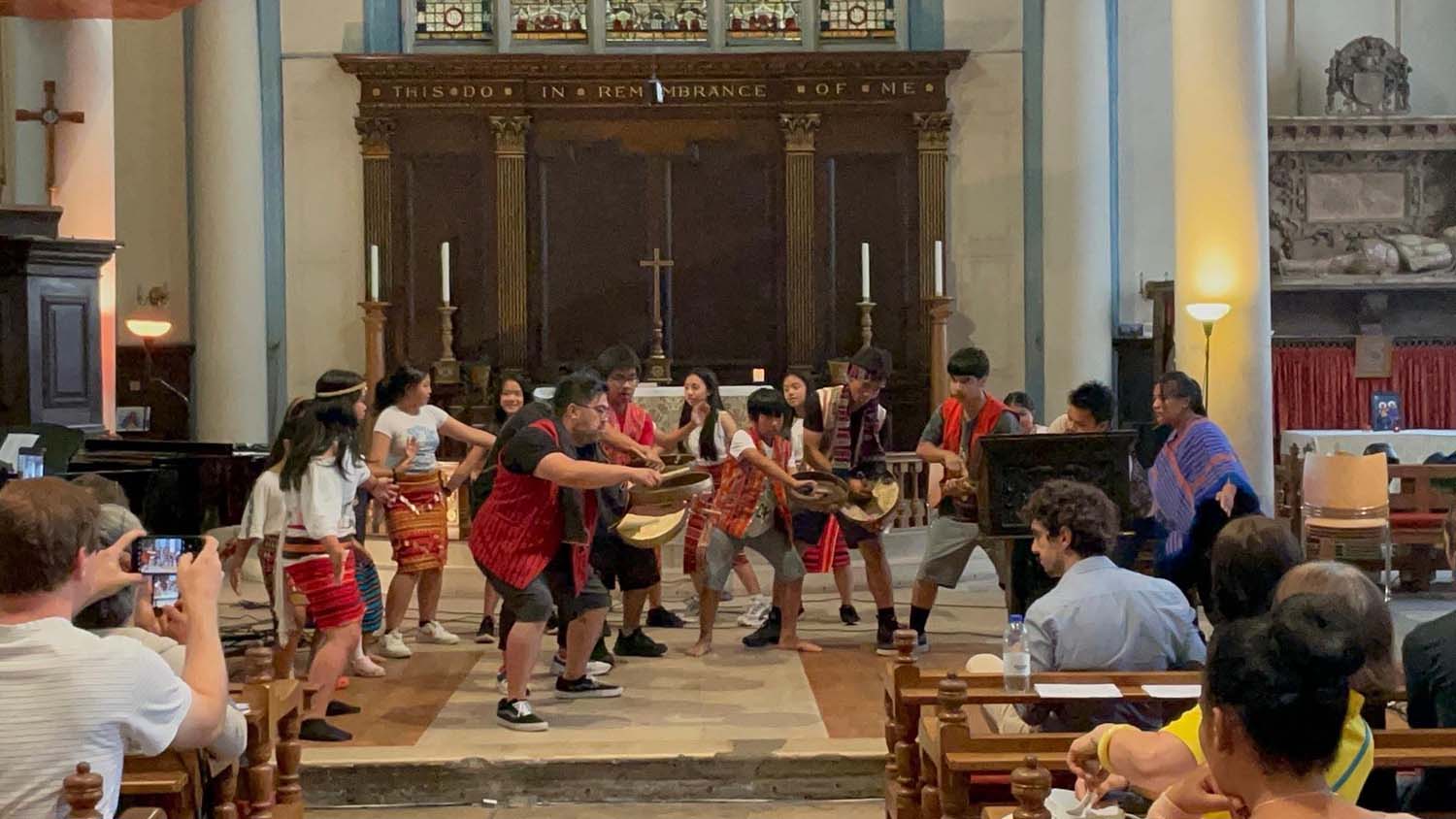As per our project plan, the focus in Year One has been on
- developing leadership among migrants, in music for worship, and in wider church and community life
- developing a budget and funding plan so that a School of Music can launch in the autumn of 2024
The grant from Saint Thomas has funded the work delivered by Ana Franca-Ferreira for the Centre for Theology & Community (CTC) with match-funding secured for two staff working under her part-time, so that the team has one member focused on each Sunday Mass (11am English, 2pm Portuguese and 4pm Spanish).
Developing Leadership among Migrants
At St Martin’s Plaistow a key area of work has been support for Rosa de Fe (a remarkable lay-led organization) in both their music making and in developing more widely as leaders in the church and community.
Rosa de Fe was founded by Alsácia da Esperança (her surname means Hope in Portuguese – a migrant from São Tome, whom I mentioned in my sermon at St Thomas’ last year) and includes Juliana a young migrant from São Tomé. In a story very typical of migrants in east London, she has a recording contract in her homeland but is currently working on a very low wage in the UK as a cleaner in Dagenham.
Adults and children from Rosa de Fe have sung at a range of liturgical and community events in Newham and the City of London including services honoring cleaners and care workers in the City of London and a special service on the 1st Anniversary of Fr Marco’s death. They were also involved in a multi-faith 100-strong International Women’s Day celebration at St Martin’s last Saturday where they talked to women from Muslim and other faiths about Lent and how they live this special time. Rosa da Fe have also recently developed a local project together with a local Mosque to support women locally through awareness workshops, food and music.
We have also been engaging migrant communities beyond St Martin’s – including a Filipino Christian group from St Barnabas’ Walthamstow engaged the whole congregation at our care workers’ service in a cultural dance, and the choir of St Antony’s Roman Catholic Parish and St Angela’s Roman Catholic Primary School in Forest Gate.
We have also collaborated with Shpresa Programme (a user-led organization based in Plaistow, founded to support Albanians but now also embracing a range of migrant communities) on a 100-strong Mother Theresa Day in the City of London, with music, testimony and prayer. This relationship continues to deepen, with 20 Albanians at last Saturday’s event at St Martin’s.
Within and beyond St Martin’s, we are seeing strong connections between migrants’ leadership in church and community music and their finding of their voice in the wider life of the Church and community. (This is a theme I will be reflecting on at more depth in my address to the centennial event Fr Luigi is arranging.)
Only last week, with support from CTC, St Martin’s has just relaunched the Food Bank in its hall as a Food Pantry – with a parallel Warm Space in the church, to help nurture relationships – and to create the possibility of action to tackle the structural issues behind food and fuel poverty and social isolation. After the Pantry and Warm Space close, there is a trilingual Mass and a community meal. As well as offering food and fellowship, the community meal allows asylum seekers who are housed in local hostels to have the dignity of cooking food for themselves and for others.
In recent months, we have secured additional funding to develop new training programs in community organizing for Newham Christians, including one specifically focused on teenagers. While these are not part of the “Migrant Voices” project, they have been secured in no small part because of the quality of the work being done by CTC at St Martin’s, under Ana’s leadership. None of this would be happening without the support we have received from St Thomas’, and leaders from migrant communities will benefit from both programs.
Plans for a Music School
As per the project plan, we have developed a budget for the second year of work. We hope to secure most or all of the remaining funding from the Church of England Strategic Development Fund (SDF) by the end of May. We are currently developing a more detailed project delivery plan, and gathering the team of sessional musicians.
The project budget includes
- one day per week of time for CTC staff to lead the project.
- sessional work by a range of musicians trained in Community Organising to develop musicians and choirs across the three congregations at St Martin’s, and in other migrant communities.
- the piloting of part-time “Migrant Voice” apprenticeships, with support and mentoring, so that leaders such as Alsácia and Juliana can be paid a Living Wage to develop their music in the context of their wider church and community leadership.
Conclusion
I am so grateful that our re-connection this year has been a catalyst for such generous support for St Martin’s at a time when they have such need. What is apparent from the way the work is developing is that they also have quite extraordinary potential. Thank you for helping this to become a reality.
Fr. Angus Ritchie,
Director
The Centre for Theology & Community
East Crypt, St George-in-the-East
14 Cannon Street Road
London, E1 0BH

